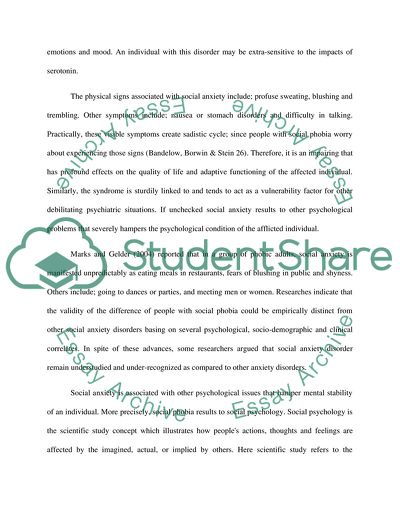Cite this document
(Impacts of Social Anxiety Disorder on Social Psychology Essay - 9, n.d.)
Impacts of Social Anxiety Disorder on Social Psychology Essay - 9. https://studentshare.org/psychology/1847957-final-paper
Impacts of Social Anxiety Disorder on Social Psychology Essay - 9. https://studentshare.org/psychology/1847957-final-paper
(Impacts of Social Anxiety Disorder on Social Psychology Essay - 9)
Impacts of Social Anxiety Disorder on Social Psychology Essay - 9. https://studentshare.org/psychology/1847957-final-paper.
Impacts of Social Anxiety Disorder on Social Psychology Essay - 9. https://studentshare.org/psychology/1847957-final-paper.
“Impacts of Social Anxiety Disorder on Social Psychology Essay - 9”. https://studentshare.org/psychology/1847957-final-paper.


